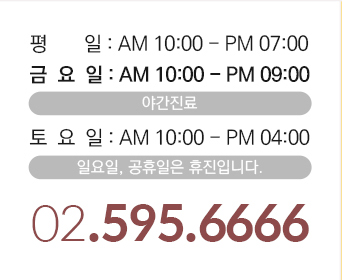Get Investors In South Africa Like Bill Gates To Succeed In Your Start…
작성일 22-06-23 17:49
페이지 정보
작성자Ruben Burdette 조회 252회 댓글 0건본문
Many South Africans have wondered how to get investors to attract investors to your business. Here are some things to think about:
Angel investors
You may be wondering where to find South African angel investors to invest in your business at the time you launch it. This is not a good strategy. Many entrepreneurs turn to banks to secure funding. Angel investors are great for seed funding but they also prefer investing in companies that are able to attract institutional capital. To increase the chances of getting an angel investor, ensure that you meet their standards. Check out these tips to attract an angel investor.
Create the business plan. Investors look for a business plan that could get a R20 million valuation within five to seven years. They will evaluate your business plan on the basis of size, market analysis, and the expected market share. Investors want to see a company that is a leader in its field. If you plan to join the R50 million market, for instance you must get 50% or more of the market.
Angel investors invest in companies that have a solid business plan and will likely earn a substantial amount of money in the long run. Make sure that the plan is thorough and convincing. It is crucial to include financial projections showing that the company will reach the profit of R5-10 million per million invested. Monthly projections are essential for the initial year. These elements should be included in a complete business plan.
If you're looking for angel investors in South Africa, you can look into databases such as Gust. Gust is a directory that lists thousands of investors who are accredited and startups. These investors are usually highly skilled, however you should conduct some research prior to engaging with an investor. Another option is Angel Forum, which matches startups with angel investors. Many of these investors are seasoned professionals with demonstrated track records. The list is huge however, evaluating them can require a significant amount of time.
In South Africa, if you're looking for angel investors, ABAN is an organization to help angel investors in South Africa. It boasts a growing membership of more than 29,000 investors with an investment fund of 8 trillion Rand. SABAN is an organization that is specifically South African. ABAN's mission is to increase the number HNIs who invest in small and emerging businesses in Africa. These individuals are not seeking to invest their own money into your company, but offer their expertise and capital in exchange for equity. It is also necessary to have a an excellent credit score in order to be able to get access to angel investors in South Africa.
It is important to remember that angel investors aren't likely to invest in small companies. Research shows that 80 percent of companies fail within the first years of their operations. Entrepreneurs must present the best pitch possible. Investors are looking for steady income with growth potential. Usually, they're looking to find entrepreneurs who have the necessary knowledge and skills to accomplish this.
Foreigners
The country's young people and entrepreneurial spirit are great opportunities for foreign investors. Potential investors will find the country to be resource-rich and a young economy that is situated at the crossroads of sub-Saharan Africa. It also has low unemployment rates, which are a benefit. Its 57 million people are predominantly located on the southeastern and southern coasts and offers great opportunities for manufacturing and energy. However, there are a lot of issues, such as high unemployment, which could be a burden to the economy and the social life.
First foreign investors should be aware of South Africa's laws concerning public investment and procurement. In general, foreign companies are required to nominate one South African resident to serve as an official representative. This can be a problem and it is essential that you are aware of local legal requirements. Foreign investors must also be aware of South Africa's public interest considerations. To learn more about the regulations regarding public procurement in South Africa, it is best to get in touch with the government officials.
Over the past few years, FDI inflows to South Africa have fluctuated and have been less than comparable flows to developing countries. Between 1994 and 2002, FDI inflows hovered around 1.5 percent of GDP. The highest levels were in 2005 and 2006, primarily due to large investment in the banking sector, including the USD3.1 billion purchase of ABSA bank by Barclay and the Industrial and Commercial Bank of China's acquisition of Standard Bank.
The law governing foreign ownership is another important aspect of South African's investment process. South Africa has implemented a strict procedure for participation of the public. Amendments to the constitution must be made public within 30 days of their introduction to the legislature. They must be supported by at minimum six provinces before becoming law. Before deciding whether to invest in South Africa, investors need be able to assess whether the new laws will benefit them.
A key piece of legislation designed to encouraging foreign direct investment to South Africa involves section 18A of the Competition Amendment Act. The law gives the President the power to establish a committee comprising 28 Ministers and how to get investors in south africa other officials to examine foreign acquisitions and intervene if they threaten national security. The Committee must define "national security interest" and determine which companies could pose in danger to these interests.
The laws of South Africa are quite transparent. Most laws and regulations are published in draft form and open to public comments. Although the process is quick and cheap, penalties for late filing can be severe. South Africa's corporate tax rate is 28 percent which is slightly higher than the global average but in line with its African counterparts. In addition to having a favorable tax climate South Africa also has the lowest rate of corruption.
Property rights
As the nation tries to recover from the recent economic crisis and recession, it is crucial to secure private property rights. These rights must not be subject to government intervention. This allows the owner to earn money from their property without interference from the government. Property rights are crucial to investors, who want to be confident that their investments are safe from government confiscation. Historically, South African blacks were denied property rights under the Apartheid government. Property rights are a critical aspect of economic growth.
The South African government aims to protect foreign investors in the country by implementing various legal measures. Foreign investors receive legal protections and a qualified physical security by the Investment Act. This ensures that they have the same protections as investors from the country. The Constitution protects foreign investors' rights to property and permits the government to take property for public use. Foreign investors should be aware of the regulations governing transfer of property rights to get investors into South Africa.
In 2007, the South African government exercised its power of expropriation without compensation. The government took over farms in the Northern Cape and Limpopo regions in 2007 and in 2008. They paid fair market value for the land and the new expropriation legislation is awaiting the President's signature. Some analysts have expressed concerns about the new law, declaring that it will allow the government to expropriate land how To get investors without compensation, even when there is a legal precedent.
Without property rights, a lot of Africans do not own their own land. They are also not able to take part in the capital appreciation of land they do not own. In addition, they cannot finance the land and therefore, they cannot use the money for investing in other business endeavors. However, once they have the rights to property, they can loan the land to raise funds to develop it further. This is an excellent way to attract investors to South Africa.
The 2015 Promotion of Investment Act removed the possibility of investor state dispute resolution through international court systems. However, it still allows foreign investment to appeal government decisions through Department of Trade and Industry. Foreign investors can also seek out any South African court, independent tribunal or statutory authority to get their disputes resolved. If South African government cannot be reached, arbitration can be used to settle the dispute. However, investors must keep in mind that the government only has limited remedies in the case of disputes between the state and investor.
The legal system of South Africa is mixed, with the common law of England and Dutch being the main components. African customary law is also an important component of the legal system. The government enforces intellectual property rights using both civil and criminal procedures. Moreover the country has a robust regulatory framework that is in accordance with international standards. In addition, South Africa's rapid economic expansion has led to creation of a strong and stable economy.
Angel investors
You may be wondering where to find South African angel investors to invest in your business at the time you launch it. This is not a good strategy. Many entrepreneurs turn to banks to secure funding. Angel investors are great for seed funding but they also prefer investing in companies that are able to attract institutional capital. To increase the chances of getting an angel investor, ensure that you meet their standards. Check out these tips to attract an angel investor.
Create the business plan. Investors look for a business plan that could get a R20 million valuation within five to seven years. They will evaluate your business plan on the basis of size, market analysis, and the expected market share. Investors want to see a company that is a leader in its field. If you plan to join the R50 million market, for instance you must get 50% or more of the market.
Angel investors invest in companies that have a solid business plan and will likely earn a substantial amount of money in the long run. Make sure that the plan is thorough and convincing. It is crucial to include financial projections showing that the company will reach the profit of R5-10 million per million invested. Monthly projections are essential for the initial year. These elements should be included in a complete business plan.
If you're looking for angel investors in South Africa, you can look into databases such as Gust. Gust is a directory that lists thousands of investors who are accredited and startups. These investors are usually highly skilled, however you should conduct some research prior to engaging with an investor. Another option is Angel Forum, which matches startups with angel investors. Many of these investors are seasoned professionals with demonstrated track records. The list is huge however, evaluating them can require a significant amount of time.
In South Africa, if you're looking for angel investors, ABAN is an organization to help angel investors in South Africa. It boasts a growing membership of more than 29,000 investors with an investment fund of 8 trillion Rand. SABAN is an organization that is specifically South African. ABAN's mission is to increase the number HNIs who invest in small and emerging businesses in Africa. These individuals are not seeking to invest their own money into your company, but offer their expertise and capital in exchange for equity. It is also necessary to have a an excellent credit score in order to be able to get access to angel investors in South Africa.
It is important to remember that angel investors aren't likely to invest in small companies. Research shows that 80 percent of companies fail within the first years of their operations. Entrepreneurs must present the best pitch possible. Investors are looking for steady income with growth potential. Usually, they're looking to find entrepreneurs who have the necessary knowledge and skills to accomplish this.
Foreigners
The country's young people and entrepreneurial spirit are great opportunities for foreign investors. Potential investors will find the country to be resource-rich and a young economy that is situated at the crossroads of sub-Saharan Africa. It also has low unemployment rates, which are a benefit. Its 57 million people are predominantly located on the southeastern and southern coasts and offers great opportunities for manufacturing and energy. However, there are a lot of issues, such as high unemployment, which could be a burden to the economy and the social life.
First foreign investors should be aware of South Africa's laws concerning public investment and procurement. In general, foreign companies are required to nominate one South African resident to serve as an official representative. This can be a problem and it is essential that you are aware of local legal requirements. Foreign investors must also be aware of South Africa's public interest considerations. To learn more about the regulations regarding public procurement in South Africa, it is best to get in touch with the government officials.
Over the past few years, FDI inflows to South Africa have fluctuated and have been less than comparable flows to developing countries. Between 1994 and 2002, FDI inflows hovered around 1.5 percent of GDP. The highest levels were in 2005 and 2006, primarily due to large investment in the banking sector, including the USD3.1 billion purchase of ABSA bank by Barclay and the Industrial and Commercial Bank of China's acquisition of Standard Bank.
The law governing foreign ownership is another important aspect of South African's investment process. South Africa has implemented a strict procedure for participation of the public. Amendments to the constitution must be made public within 30 days of their introduction to the legislature. They must be supported by at minimum six provinces before becoming law. Before deciding whether to invest in South Africa, investors need be able to assess whether the new laws will benefit them.
A key piece of legislation designed to encouraging foreign direct investment to South Africa involves section 18A of the Competition Amendment Act. The law gives the President the power to establish a committee comprising 28 Ministers and how to get investors in south africa other officials to examine foreign acquisitions and intervene if they threaten national security. The Committee must define "national security interest" and determine which companies could pose in danger to these interests.
The laws of South Africa are quite transparent. Most laws and regulations are published in draft form and open to public comments. Although the process is quick and cheap, penalties for late filing can be severe. South Africa's corporate tax rate is 28 percent which is slightly higher than the global average but in line with its African counterparts. In addition to having a favorable tax climate South Africa also has the lowest rate of corruption.
Property rights
As the nation tries to recover from the recent economic crisis and recession, it is crucial to secure private property rights. These rights must not be subject to government intervention. This allows the owner to earn money from their property without interference from the government. Property rights are crucial to investors, who want to be confident that their investments are safe from government confiscation. Historically, South African blacks were denied property rights under the Apartheid government. Property rights are a critical aspect of economic growth.
The South African government aims to protect foreign investors in the country by implementing various legal measures. Foreign investors receive legal protections and a qualified physical security by the Investment Act. This ensures that they have the same protections as investors from the country. The Constitution protects foreign investors' rights to property and permits the government to take property for public use. Foreign investors should be aware of the regulations governing transfer of property rights to get investors into South Africa.
In 2007, the South African government exercised its power of expropriation without compensation. The government took over farms in the Northern Cape and Limpopo regions in 2007 and in 2008. They paid fair market value for the land and the new expropriation legislation is awaiting the President's signature. Some analysts have expressed concerns about the new law, declaring that it will allow the government to expropriate land how To get investors without compensation, even when there is a legal precedent.
Without property rights, a lot of Africans do not own their own land. They are also not able to take part in the capital appreciation of land they do not own. In addition, they cannot finance the land and therefore, they cannot use the money for investing in other business endeavors. However, once they have the rights to property, they can loan the land to raise funds to develop it further. This is an excellent way to attract investors to South Africa.
The 2015 Promotion of Investment Act removed the possibility of investor state dispute resolution through international court systems. However, it still allows foreign investment to appeal government decisions through Department of Trade and Industry. Foreign investors can also seek out any South African court, independent tribunal or statutory authority to get their disputes resolved. If South African government cannot be reached, arbitration can be used to settle the dispute. However, investors must keep in mind that the government only has limited remedies in the case of disputes between the state and investor.
The legal system of South Africa is mixed, with the common law of England and Dutch being the main components. African customary law is also an important component of the legal system. The government enforces intellectual property rights using both civil and criminal procedures. Moreover the country has a robust regulatory framework that is in accordance with international standards. In addition, South Africa's rapid economic expansion has led to creation of a strong and stable economy.
댓글목록
등록된 댓글이 없습니다.








